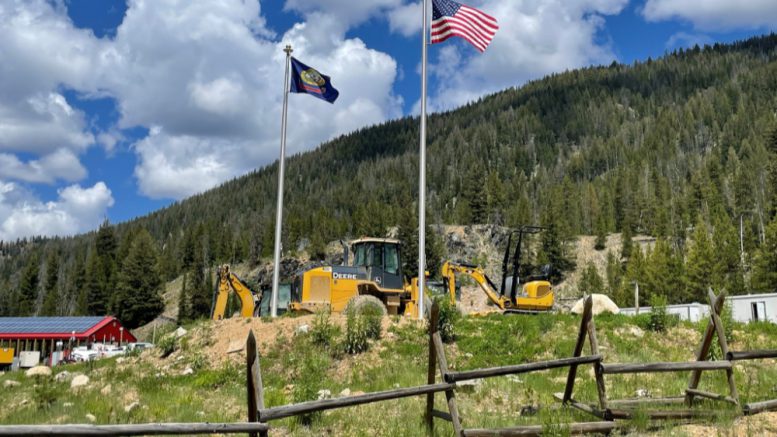Perpetua Resources (TSX: PPTA; NASDAQ: PPTA) has received a letter of interest from the Export-Import Bank of the United States (EXIM) for a potential debt financing of up to US$1.8 billion to help develop its proposed gold mine in northern Idaho.
If approved, the loan would be one of Washington’s largest investments ever in a domestic mine. Perpetua’s Stibnite project is host to one of the largest gold deposits in the country, but could also be a significant source of antimony, a critical mineral deemed essential to national defence.
A 2020 feasibility study showed the project hosts proven and probable reserves totalling 104.6 million tonnes grading 1.43 grams gold per tonne and 0.06% antimony, for 4.8 million oz. of gold and 148 million lb. antimony. Its average annual metal production during the first four years of operation is forecast at 463,000 oz. of gold and 18.4 million lb. of antimony.
Currently, the U.S. produces no antimony and thus is entirely dependent on imports. Meanwhile, its chief rivals China and Russia control over 70% of the global mined supply, according to the U.S. Geological Survey. Nearly half of U.S. imports come from China, the leading producer.
The funding for Stibnite would be made available through the bank’s “Make More in America” and “China and Transformational Exports Program” (CTEP) initiatives, both part of Washington’s strategy to offset China’s critical minerals sector dominance.
It reflects the Biden administration’s growing desire to use government funds on extractive projects with terms that are more favourable than those from private lenders, a practice the Chinese government has used for years to gain its dominance in the critical minerals.
According to EXIM, the loan would have a repayment term of 15 years, the same as Stibnite’s mine life, which is much longer than any potential private financing. The interest rate, set a closing, could also be “flexible” given the mine’s Chinese competitors, the bank said.
As indicated in its letter, Perpetua has cleared the initial loan requirements to start the formal application process, which is expected to take 12 months. The letter also allows the company to start negotiations with equipment suppliers.
Once it receives the financing application, EXIM will conduct the due diligence necessary to determine if a final commitment may be issued, it said.
“We are seeing a whole of government approach to bring antimony production home,” Jon Cherry, CEO of Perpetua Resources, said in a news release Monday, adding that the EXIM debt funding could “fund a substantial portion” of the estimated costs to build the Stibnite project.
According to Reuters, the US$1.8 billion loan figure is based on an EXIM formula tied to the number of construction, operation and reclamation jobs at the mine. In 2020, the project’s initial cost was estimated at nearly US$1.3 billion, which could easily rise due to inflation.
Stibnite has already received serious financial backing from the U.S. government. The Pentagon has already committed almost US$60 million to fund the mine’s permitting, which would include the cleanup and expansion of a site that was polluted during the Second World War.
Stibnite could potentially become the second mine project to receive billion-dollar backing to expedite its development. Earlier this year, the Department of Energy announced it would lend up to US$2.26 billion to build Lithium Americas’ (TSX: LAAC; NYSE: LAAC) Thacker Pass mine in Nevada, viewed as an important supplier in the U.S. electric vehicle supply chain.
Perpetua Resources’ shares jumped 7.7% at market open Monday after the announcement. At US$5.14, the stock is trading in the upper range of its 52-week range of US$2.64-US$5.49. On the TSX, the company has a market capitalization of $417 million.


Be the first to comment on "Perpetua tapped for US$1.8B loan to develop gold-antimony mine in Idaho"